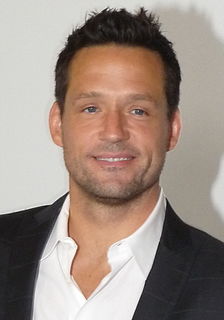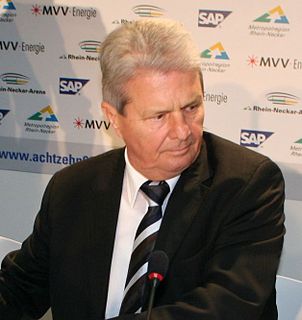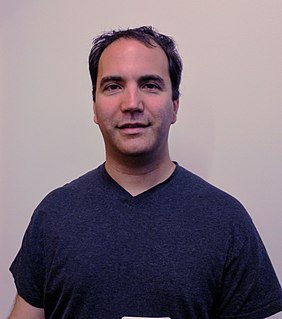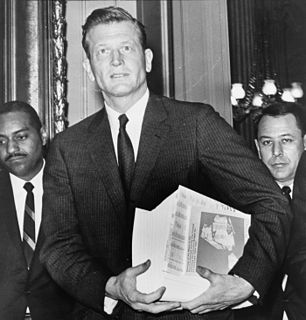A Quote by Paul Hawken
People are naming it the Third Wave, the Information Age, etc. but I would say those are basically technological descriptions, and this next shift is not about technology - although obviously it will be influenced and in some cases expressed by technologies.
Related Quotes
I'm not a big believer in revolutions. What people call revolutions in technology were more of a shift in perception - from big machines to PC's (the technology just evolved, fairly slowly at that), and from PC's to the internet. The next "revolution" is going to be the same thing - not about the technology itself being revolutionary, but a shift in how you look at it and how you use it.
If you're up on a stage, naked and solo and singing songs to people, there's not much place to hide, so you may as well confess what you want to confess and say what you want to say, whatever that is. Some songs just turn out as being more about me, and some are more through the eyes of other people, or third-person descriptions of people.
One of the things I noticed about the Trump supporters was a lot of projected fear. I can't tell you how many times a conversation went like this: "We've got to stop these immigrants, because it's terrible." I'd say, "Okay, what personally have you observed about this?" And there would be basically nothing in that box. And I'd say, "Where'd you get your information?" thinking they were going to say Fox. But they would always say, "Well, I get my information from all kinds of sources." Fox is kind of center-left to a lot of people now.
I started my career as a journalist, writing about science and technology for 'Business Week' magazine. Then I decided to make a career shift. I went to graduate school in computer science, and I began developing educational technologies - in particular, technologies to engage children in creative learning experiences.
You can't just stop technological progress. Even if one country stops researching artificial intelligence, some other countries will continue to do it. The real question is what to do with the technology. You can use exactly the same technology for very different social and political purposes. So I think people shouldn't be focused on the question of how to stop technological progress because this is impossible. Instead the question should be what kind of usage to make of the new technology. And here we still have quite a lot of power to influence the direction it's taking.
What’s next for technology and design? A lot less thinking about technology for technology’s sake, and a lot more thinking about design. Art humanizes technology and makes it understandable. Design is needed to make sense of information overload. It is why art and design will rise in importance during this century as we try to make sense of all the possibilities that digital technology now affords.
One of the things that's exciting for me about this novel is that, to me, Brookland and The Testament of Yves Gundron were both, in certain regards, crypto-steampunk. They're both books that are interested in an alternate technological past that in fact didn't historically come to pass. If you were to ask me what my novels were about, I would say, well, these are novels about technology and how we relate to technology and what technology means.
I'm certainly very influenced by what you would call "contemporary headline horror," stuff that is true crime or for one reason or another catches our attention in the media, those strange cases that we end up obsessing about. I'm always influenced by weird anecdotes and news. And, you know, lastly, probably things that have happened to me in my own life.






































